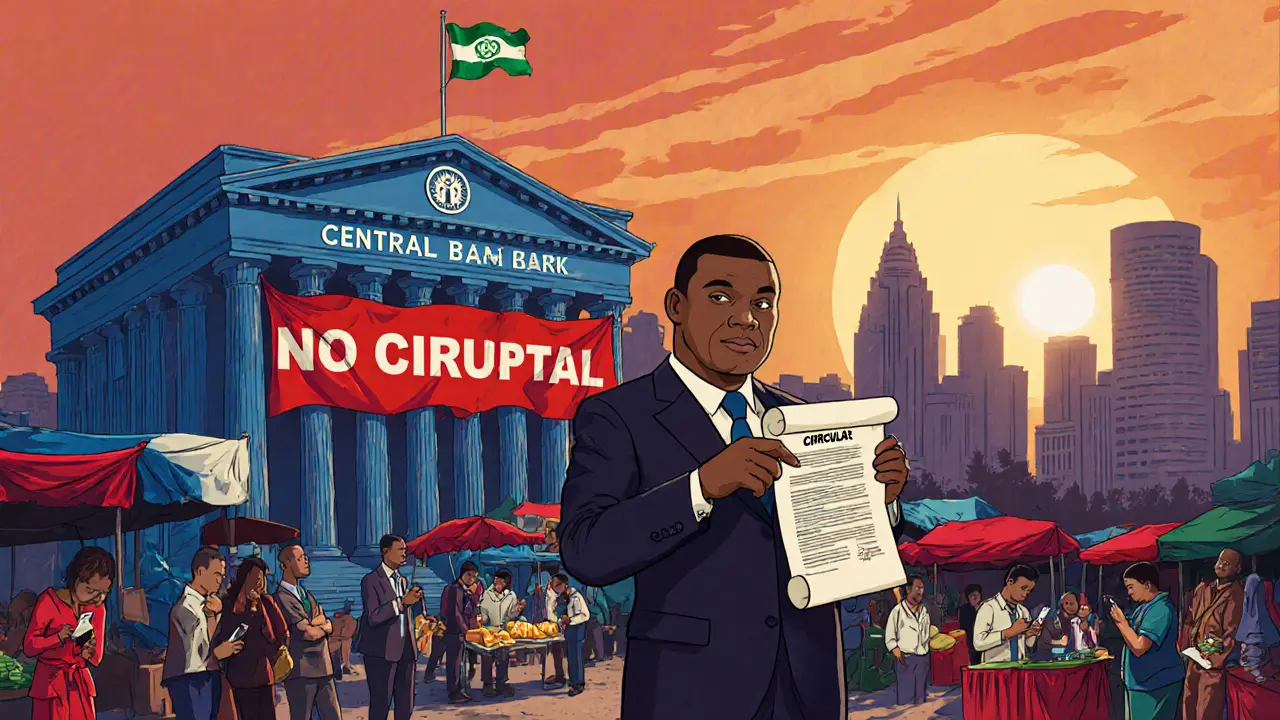Nigeria Crypto Ban: What It Means for Traders and Exchanges
When working with Nigeria crypto ban, the government‑imposed restriction that blocks local residents from accessing most cryptocurrency services. Also known as Nigeria’s crypto prohibition, it directly affects cryptocurrency exchange, platforms that let users buy, sell, or trade digital assets and shapes the environment for Nigerian traders, people living in Nigeria who actively participate in crypto markets. The policy is a form of crypto regulation, legal rules that govern how digital currencies can be used and advertised aimed at curbing capital flight and protecting consumers.
Nigeria crypto ban forces many local users to look for workarounds. Some turn to peer‑to‑peer (P2P) platforms, while others migrate to exchanges that claim to be compliant, such as Luno or EasyEquities. Reviews like the Naijacrypto Crypto Exchange Review highlight missing licensing and security red flags, urging users to verify KYC procedures before depositing funds. At the same time, a surge of crypto airdrop promotions—think NYM, HappyFans, or DeFi11—tries to attract Nigerian participants despite the ban. Understanding the legal status of these airdrops is crucial; many are labelled “community giveaways” but can run afoul of the same regulation if they imply investment opportunities.
Regulatory Ripple Effects and the Future of DeFi in Nigeria
The ban doesn’t just hit centralized platforms. Decentralized Finance (DeFi) protocols, liquidity pools, and cross‑chain bridges also feel the pressure because the same law defines “crypto service provider” broadly. Projects that rely on token sales or IDOs—like HappyFans (HAPPY) or MOBOX—must navigate a gray area where promotion could be deemed illegal. Meanwhile, the Central Bank of Nigeria (CBN) has hinted at issuing a digital currency, adding another layer of competition for existing crypto solutions. Traders who stay informed about evolving crypto regulation can better assess risk, especially when evaluating tokenomics of new projects or deciding whether to claim an airdrop.
Below you’ll find a curated collection of articles that break down exchange reviews, airdrop guides, and regulatory analysis—all centered on the realities created by the Nigeria crypto ban. Whether you’re hunting for a safe trading venue, checking the legitimacy of a token giveaway, or just trying to understand how the ban reshapes the local crypto scene, these resources give you the practical insight you need to move forward with confidence.
Nigeria Crypto Ban Reversal Timeline: From 2021 Ban to 2025 Regulatory Framework
A detailed timeline shows how Nigeria moved from a 2021 crypto banking ban to a regulated digital‑asset framework by 2025, covering key events, new laws, and what they mean for users and businesses.
